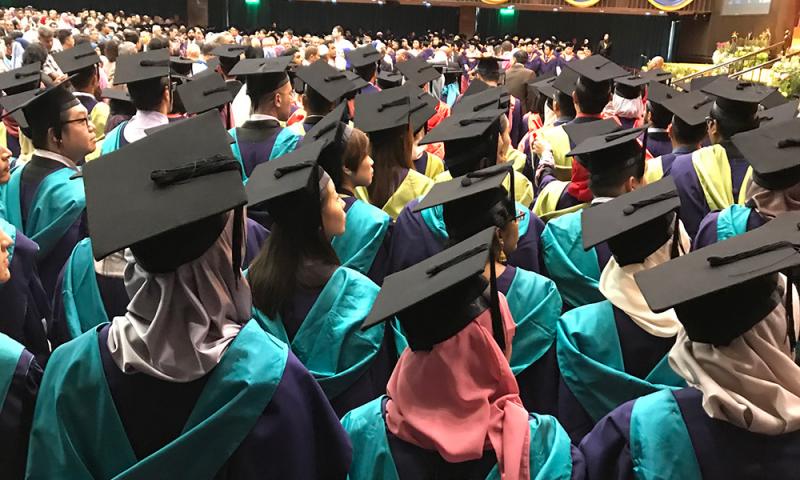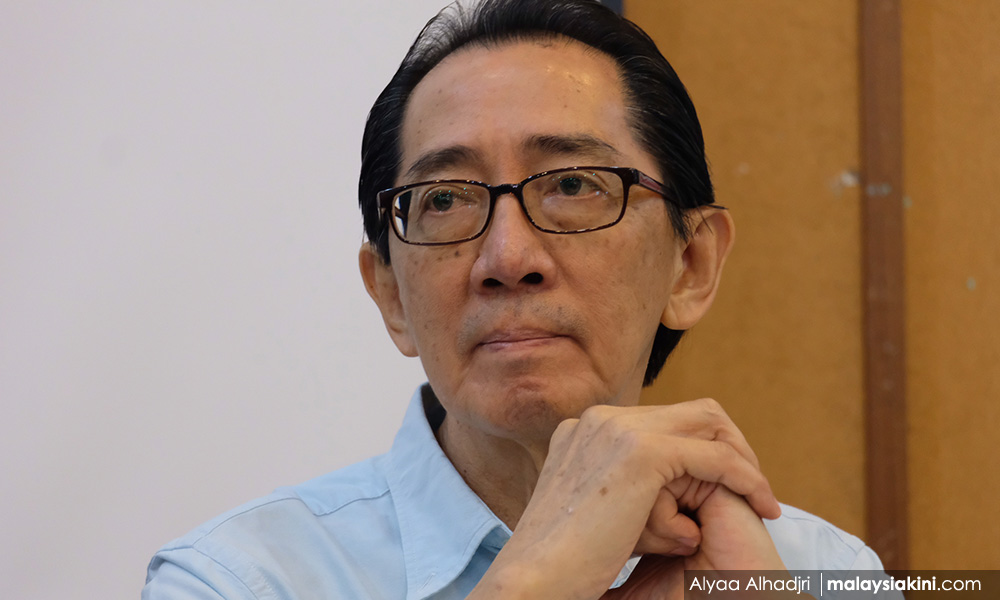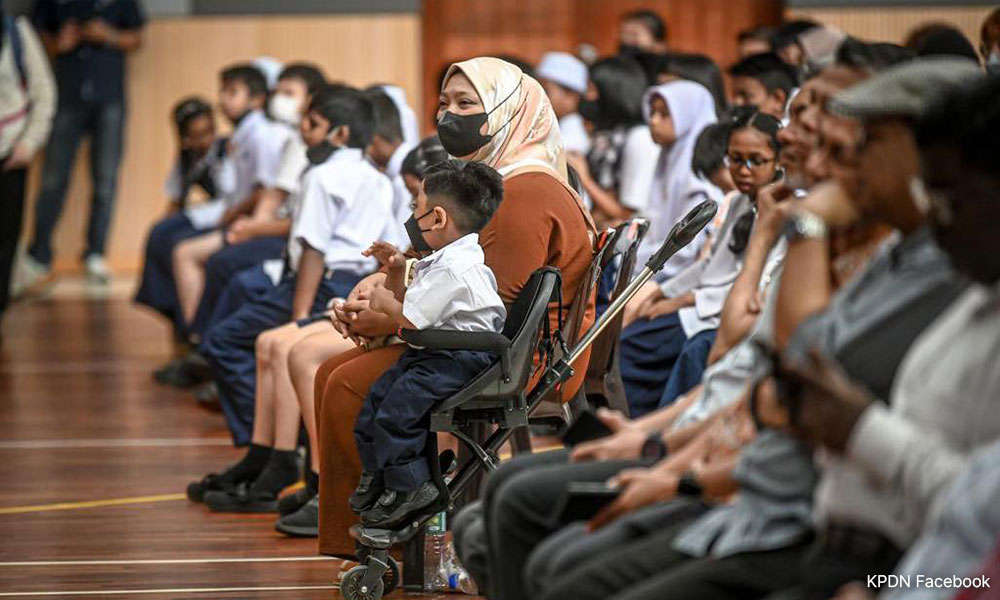
S Thayaparan
Published: Jun 17, 2024
“The main problem when it came to education among the Malays was apathy.”
- Anuar Ahmad, deputy chairperson of the Bumiputera Economic Congress secretariat on education reform and human capital
COMMENT | Recent public comments emanating from the Bumiputera Economic Congress secretariat surprisingly point to the dysfunction of Malay uber alles policies of successive governments.
Collating data from 8,600 respondents on issues faced by the majority community when it comes to education, the secretariat found that apathy, lack of interest in math and science, and lack of family support led to the majority community or at least a large segment of it, being left behind.
Respondents who made it overseas were very clear in what they thought of as traits which made them successful and of course, the need for a rethink when it came to education and yes, life:
“They all agreed that for Malays to progress, they need to get rid of such apathy and study hard… They said Malays should not depend on assistance but should take the initiative.”
Prime Minister Anwar Ibrahim likes to portray his administration as going after the elites in society, especially when it comes to corruption, but continues policies especially when it comes to education, which sustains the elites and their corrupt ways, by keeping the majority community cut off from the progressive interconnected world we live in.
Take this kerfuffle about bringing in Singaporean volunteers to teach English.
The prime minister clarified that this was a scheme to teach English “in urban poor areas as well as the interiors of Sabah and Sarawak”.
Published: Jun 17, 2024
“The main problem when it came to education among the Malays was apathy.”
- Anuar Ahmad, deputy chairperson of the Bumiputera Economic Congress secretariat on education reform and human capital
COMMENT | Recent public comments emanating from the Bumiputera Economic Congress secretariat surprisingly point to the dysfunction of Malay uber alles policies of successive governments.
Collating data from 8,600 respondents on issues faced by the majority community when it comes to education, the secretariat found that apathy, lack of interest in math and science, and lack of family support led to the majority community or at least a large segment of it, being left behind.
Respondents who made it overseas were very clear in what they thought of as traits which made them successful and of course, the need for a rethink when it came to education and yes, life:
“They all agreed that for Malays to progress, they need to get rid of such apathy and study hard… They said Malays should not depend on assistance but should take the initiative.”
Prime Minister Anwar Ibrahim likes to portray his administration as going after the elites in society, especially when it comes to corruption, but continues policies especially when it comes to education, which sustains the elites and their corrupt ways, by keeping the majority community cut off from the progressive interconnected world we live in.
Take this kerfuffle about bringing in Singaporean volunteers to teach English.
The prime minister clarified that this was a scheme to teach English “in urban poor areas as well as the interiors of Sabah and Sarawak”.

Prime Minister Anwar Ibrahim
Let us focus on the “urban poor”. The issues they face are myriad and they are more likely in economically vibrant and racially diverse places.
Such places have unique issues and the people who understand those issues are the people living there, not minions of the state determining policy from Putrajaya.
This is why more democracy mainlined into the rakyat is a good thing.
Local elections
Something like local elections will do far more to improve and recalibrate the education system in terms of engaging residents, especially the Malay community, rather than policies that come from Putrajaya.
Activist and ex-MP Kua Kia Soong alluded to this when he was advocating for local council elections in 2018 that Pakatan Harapan had abandoned.
Let us focus on the “urban poor”. The issues they face are myriad and they are more likely in economically vibrant and racially diverse places.
Such places have unique issues and the people who understand those issues are the people living there, not minions of the state determining policy from Putrajaya.
This is why more democracy mainlined into the rakyat is a good thing.
Local elections
Something like local elections will do far more to improve and recalibrate the education system in terms of engaging residents, especially the Malay community, rather than policies that come from Putrajaya.
Activist and ex-MP Kua Kia Soong alluded to this when he was advocating for local council elections in 2018 that Pakatan Harapan had abandoned.

Activist and ex-MP Kua Kia Soong
He wrote, “I have often stressed the fact that an elected local government can, at a stroke, depoliticise education in Malaysia simply by building schools based on the need of the local communities – and not have the Education Ministry treat schools as a political football during general elections.
“Few Malaysians have noticed, for example, that the all-important role of local education authorities in the Education Act 1961 is no longer mentioned in the Education Act 1996.
“Local education authorities serve to allocate funds and other facilities to needy sectors, and can serve to dissipate politicisation of education.”
Dominance of the elite
And, forget about the urban-educated opposition politics. When politicians talk of rural folk, you have to understand that these are rural folk by design.
While rich- and middle-income Malays ensure that their children receive an education that would make them competitive in this fast-changing geopolitical landscape, the system is designed to keep “rural” Malays and working-class Malays bereft of the opportunities available to that class of Malays who control or who serve in a political system that enables their privilege.
When those Malays in that survey said Malays must work hard and be proactive, what exactly is that an indictment of? It was not of the Malay community but rather the policies and ideologies of the mainstream Malay political elites.
The question we should be asking is what is causing this apathy in a large segment of the Malay community? Why is it that Malay students are not interested in math and science? Why are families not supportive of the educational goals of their children?
He wrote, “I have often stressed the fact that an elected local government can, at a stroke, depoliticise education in Malaysia simply by building schools based on the need of the local communities – and not have the Education Ministry treat schools as a political football during general elections.
“Few Malaysians have noticed, for example, that the all-important role of local education authorities in the Education Act 1961 is no longer mentioned in the Education Act 1996.
“Local education authorities serve to allocate funds and other facilities to needy sectors, and can serve to dissipate politicisation of education.”
Dominance of the elite
And, forget about the urban-educated opposition politics. When politicians talk of rural folk, you have to understand that these are rural folk by design.
While rich- and middle-income Malays ensure that their children receive an education that would make them competitive in this fast-changing geopolitical landscape, the system is designed to keep “rural” Malays and working-class Malays bereft of the opportunities available to that class of Malays who control or who serve in a political system that enables their privilege.
When those Malays in that survey said Malays must work hard and be proactive, what exactly is that an indictment of? It was not of the Malay community but rather the policies and ideologies of the mainstream Malay political elites.
The question we should be asking is what is causing this apathy in a large segment of the Malay community? Why is it that Malay students are not interested in math and science? Why are families not supportive of the educational goals of their children?

Anecdotally, lower-income Malays who I have spoken to over the decades tell me the reason why some of them do not place much emphasis on education is because they are from large families and children are encouraged to quickly become wage earners to support the family.
Furthermore, the emphasis is on starting a family at a young age, which also hampers the education process. Keep in mind that Malay women still make up the majority in public universities so there are many variables to this issue.
A permanently underprivileged base
When it comes to education, in the ketuanan (supremacy) system, it is more about class than race. Mainstream Malaysian politics is predicated on sustaining a jingoistic, nationalist, but permanently underprivileged Malay base.
Of course, the kind of class that this system of education engineers makes them perfect as petty, mid-level bureaucrats or working-class drones, steeped in religious and racial grievances, using the system at the behest of their political masters, always hoping to jump to the next level using corrupt means.
A new serf class was created post-May 1969.
You can have a world-class education system, however you choose to define it, but if the target audience is not interested, then you have bupkis. All policies from successive governments are based on fear and loathing.
The fear instilled in the Malay majority that their rights would be usurped by egalitarian and progressive concepts, and loathing by the political elites that those same concepts are needed to ensure a viable and economically successful community.
What political elites fail to understand is that apathy often leads to resentment stoked by religious fires and then eventually violence.
This is a lesson that political elites all over the world have learnt too late.
S THAYAPARAN is Commander (Rtd) of the Royal Malaysian Navy. Fīat jūstitia ruat cælum - “Let justice be done though the heavens fall.”

Graduates of the f*cked guatunas program can never improve the required inspiration of meritocracy amongst the melayu.
ReplyDeleteYet, they can further exploit that narratives to the detriment of their race well-being.